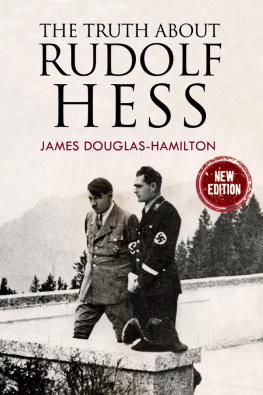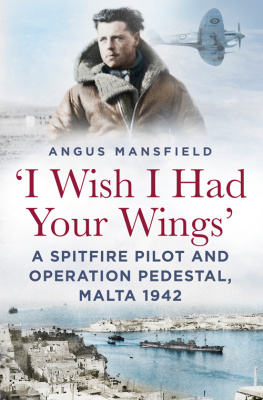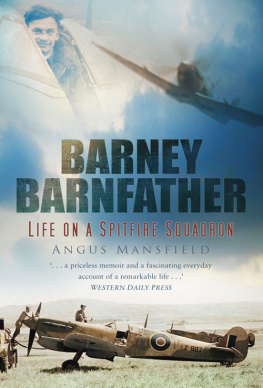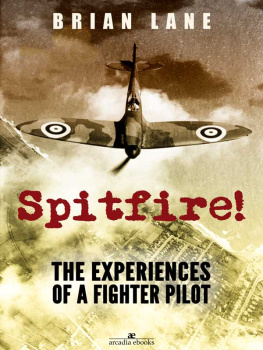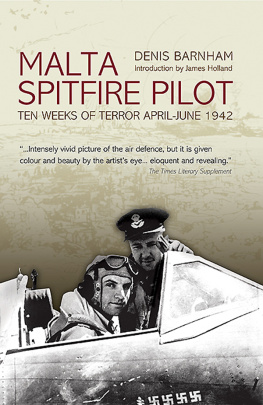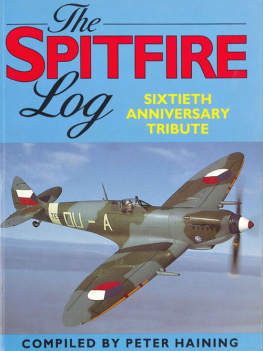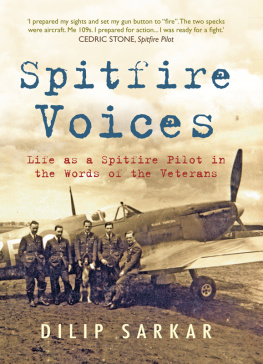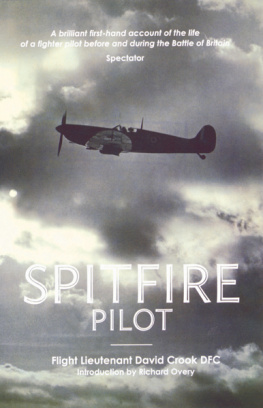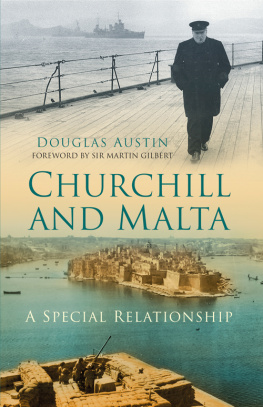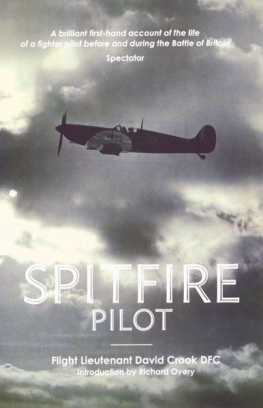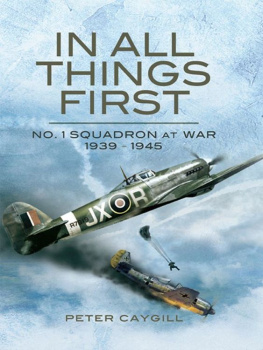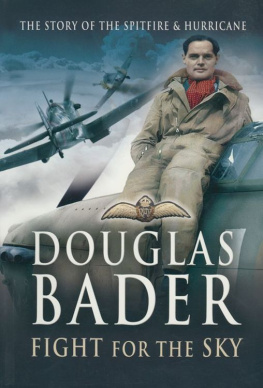
To those in the Royal Air Force who gave their lives in the
Second World War and to their families.
He either fears his fate too much
Or his deserts are small
That dares not put it to the touch
to gain or lose it all
James Graham, Marquis of Montrose
First published in Great Britain in 1981 by Mainstream Publishing Co (Edinburgh) Ltd
Reprinted in 2000 by Airlife Publishing Ltd.
This 4th edition published in 2006 by
Pen & Sword Aviation
An imprint of
Pen & Sword Books Ltd
47 Church Street
Barnsley
South Yorkshire
S70 2AS
Copyright James Douglas-Hamilton 1981, 1990, 2000, 2006
Introduction P.B. (Laddie) Lucas CBE DSO DFC
ISBN 1 84415 331 2
PRINT ISBN 978 1 84415 331 2
EPUB ISBN: 9781844684373
PRC ISBN: 9781844684380
The right of James Douglas-Hamilton to be identified as Author of this work has been
asserted by him in accordance with the Copyright, Designs and Patents Act 1988.
A CIP cataloge record for this book is
available from the British Library
All rights resreved. No part of this book may be reproduced or transmitted in any
form or by any means, electronic or mechanical including photocopying, recording
or by any information storage and retrieval system, without permission from the
Publisher in writing.
Printed and bound in England
by CPI UK
Typeset in 10/12 Palatino by
Concept, Huddersfield, West Yorkshire
Pen & Sword Books Ltd incorporates the imprints of Pen & Sword Aviation,
Pen & Sword Maritime, Pen & Sword Military, Wharncliffe Local History,
Pen & Sword Select, Pen & Sword Military Classics and Leo Cooper.
For a complete list of Pen & Sword titles please contact
PEN & SWORD BOOKS LIMITED
47 Church Street, Barnsley, South Yorkshire, S70 2AS, England
Email:
Website: www.pen-and-sword.co.uk
C ONTENTS
Acknowledgements
T he author and Publishers wish to thank the following, who have kindly given permission for the use of copyright material:
Ernest Benn Ltd., for extract from Grace under Malta, by Sybil Dobbie; Mrs Diana Cameron for extracts from 603 Squadron Diary, written by Squadron Leader Lord David Douglas-Hamilton and her father, Squadron Leader Bill Douglas DFC; Cassell and Company Limited for extracts from Volumes II and IV of the History of the Second World War by Sir Winston Churchill; William Collins and Company Limited for extract from The Rommel Papers, by B. H. Liddell Hart; Peter Davies for extracts from Tattered Battlements, A Malta Diary by a Fighter Pilot; Robert Hale Limited for extract from Malta, The Triumphant Years, by G. Hogan; Heinemann for extract from the Memoirs of Lord Ismay; Her Majestys Stationery Office for extracts from The Air Battle of Malta, the official account of the RAF in Malta, June 1940 to November 1942, published by the Ministry of Information, from the History of the Second World War Volume II by Captain S. W. Roskill, and from the History of the Second World War Volume III by General Playfair; Hodder and Stoughton for extracts from The Unconquered Isle, The Story of Malta GC, by Ian Hay; from Briefed to Attack, Maltas part in African Victory, by Air Vice Marshall Sir Hugh Lloyd, and from The Siege Within the Walls, Malta 19401943 by Stewart Perowne; Jarrolds and Lawrence Pollinger Ltd., for extracts from Where no Angels Dwell, by Air Vice-Marshall Sandy Johnstone, DFC, and from Spitfires over Malta by Paul Brennan and Ray Hesselyn; William Kimber and Company Limited for extracts from The Battle of Malta, by Joseph Attard, from The Fighter Aces of the RAF 19391945 by E. C. R. Baker, from The Memoirs of Field Marshal Kesselring, and from Faith, Hope and Charity, Three Planes against an Air Force, by Kenneth Poolman.
Mr and Mrs Dermot McDermid for extracts from the papers of Group Captain Arthur Donaldson DSO, DFC, AFC; Oxford University Press for extracts from the Struggle for Crete, by G. McD. G. Stewart; Mrs Brian Power, for extracts from Lord David Douglas-Hamiltons Diary and papers; The Public Record Office for extracts from the Prime Ministers papers; for extracts with the gracious permission of Her Majesty the Queen from the Royal Archives and for extracts with the permission of The Times of Malta.
The author also wishes to thank the Rt Hon. Francis Pym MC, Geoffrey Pattie, Air Commodore Henry Probert MBE, and Mr McDonald of the Air Historical Branch, Mrs Brian Power OBE, Duke of Hamilton, The Rt Hon. Earl of Selkirk KT, GCMG, GBE, AFC, Paul Evans DFC, GroupCaptain Cahill DSO, GroupCaptain Jack Satchell DSO, Denis Barnham DFC, Professor Reg Jones CB, CBE, Ian Ritchie, Miss Park, Sir Edward Brown MBE, Dr Bevan Jones, Air Vice Marshal Frank Dodd CBE, DSO, DFC, AFC, Lord deLIsle VC, KG, GCMG, Sir John Colville CB, CVO, Miss Eliza Oxley, Harold Lind, Charles Wild, Owen Dudley Edwards, Dr Eugene Pugatch, Mike Foulis, the US Naval Historical Center in Washington DC, the US Embassy, the US National Archives, the Imperial War Museum, the RAF Museum, and the House of Commons Library for their assistance.
The three Spitfire pilots who give the author invaluable accounts, to whom he is very grateful are:
Laddie Lucas CBE, DSO, DFC, one of the first Spitfire pilots in Malta.
Tony Holland DFC, the remaining survivor of the Spitfire pilots of 603 Squadron flown off the USS Wasp, and Air Vice-Marshal Sandy Johnstone CB, DFC, one of the last Spitfire pilots to arrive in Malta, when the circumstances had changed.
The missing link in the story was provided by the late Group Captain Arthur Donaldson DSO, DFC, AFC. He was present during the last massive confrontation between the Luftwaffe and the Spitfire pilots in October, 1942. Curiously only one fighter pilot received the Victoria Cross in the Second World War, but Arthur Donaldson probably came as close to winning it as any.
The bulk of the story is based on the 603 Squadron Diary and the personal Diary of its Commander, Squadron Leader Lord David Douglas-Hamilton, along with other material provided by his widow, Mrs Brian Power, as this covered the period when Maltas very existence hung in the balance, and the battle fought on 10 May 1942 was the turning point in the Air Battle for Malta.
Had it not been for the Diaries, in which he paid tribute to the Spitfire pilots who served with him, David might have taken his place among the countless unknown warriors of the Second World War. As it happened he was one of the only four brothers in the Royal Air Force all of whom became professional flying instructors and Squadron Commanders. His three older brothers became Wing Commanders and then Group Captains, but of the four of them David was the only brother to command a Spitfire squadron at the height of the battle. He was a patriot and a leader and therein lay his greatness.
There were of course, countless courageous men and women, perhaps millions whose contribution in the Second World War will never be known. If it makes it easier to understand what was done by so many, by telling the story of a key battle as seen through the eyes of one man and a few of his friends, then this book will have served its purpose.
Introduction by P. B. (Laddie) Lucas CBE, DSO, DFC
T he battle for Malta in the Second World War, which ebbed and lowed with varying intensity from early in 1940 to the first weeks of 1943, will rank in history as one of the great defensive and strategic operations of all time. Yet, even now, little is known about it.
There are three reasons for this. First, size. Malta is a diminutive island with a small population, set in a large sea. The public mind has never been able to reconcile its size with its strategic importance.
Next page

